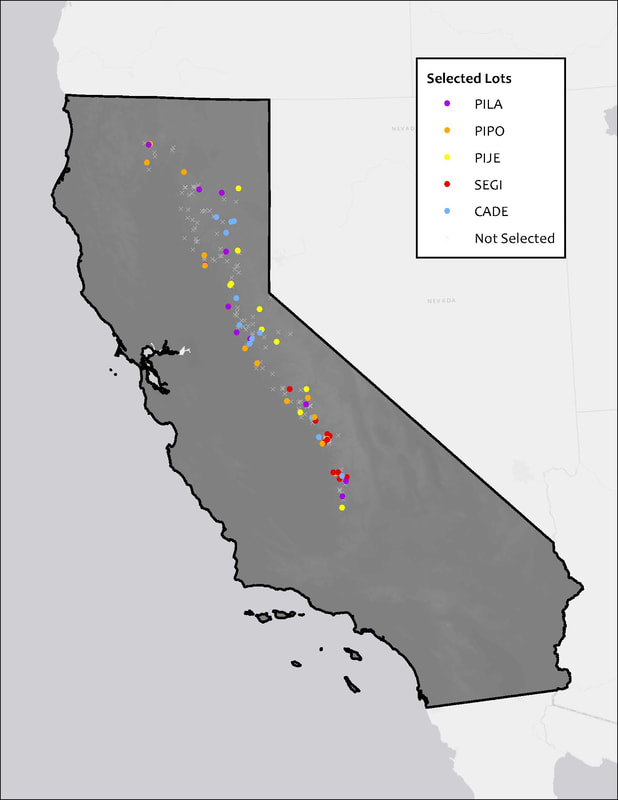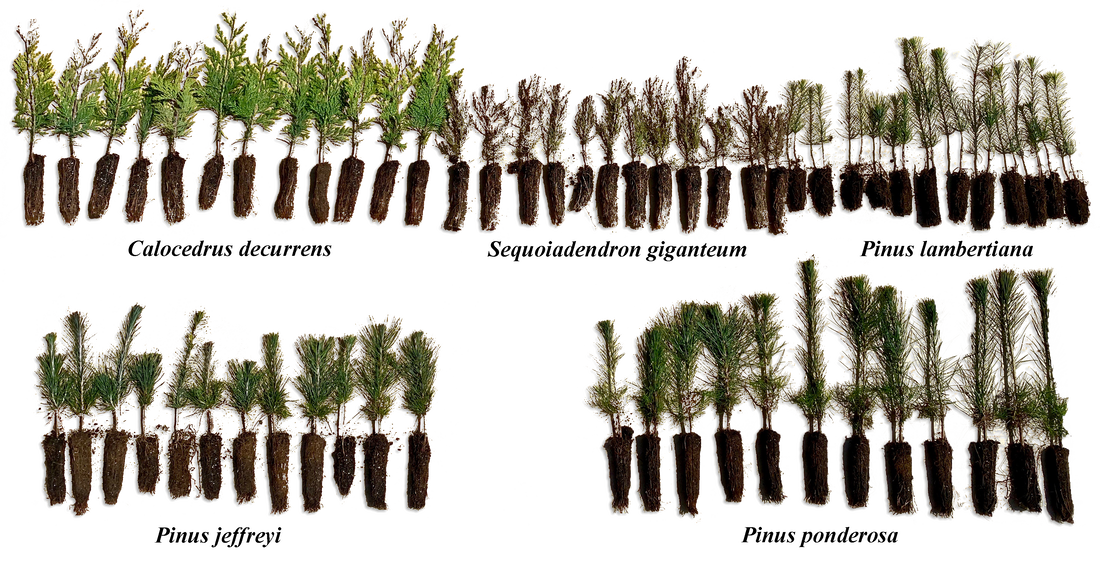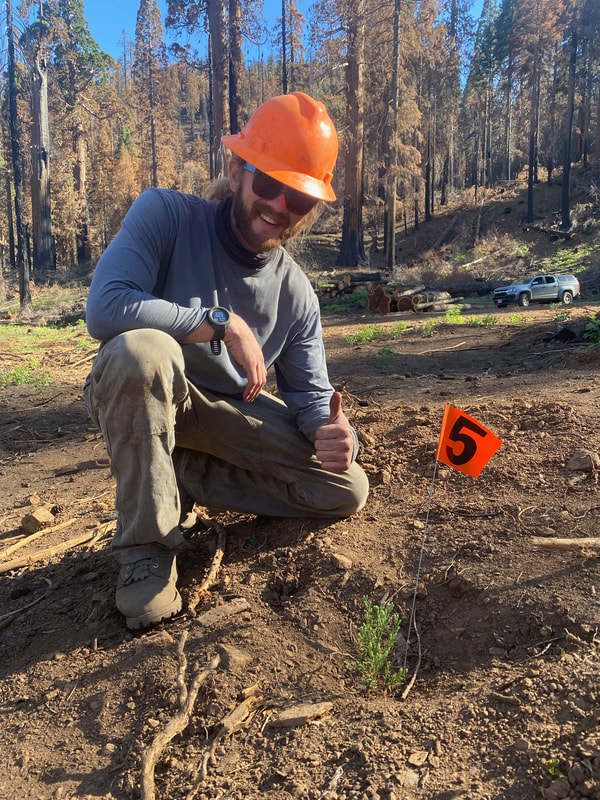|
Tree seedlings are our future forests and will need to endure not only current stressors but the challenges associated with ongoing climate change, altered disturbance regimes, and other anthropogenically-driven impacts to our forested landscapes. Our team will visit sites each spring and each fall to track growth and survival across sites, species, and provenances.
|


